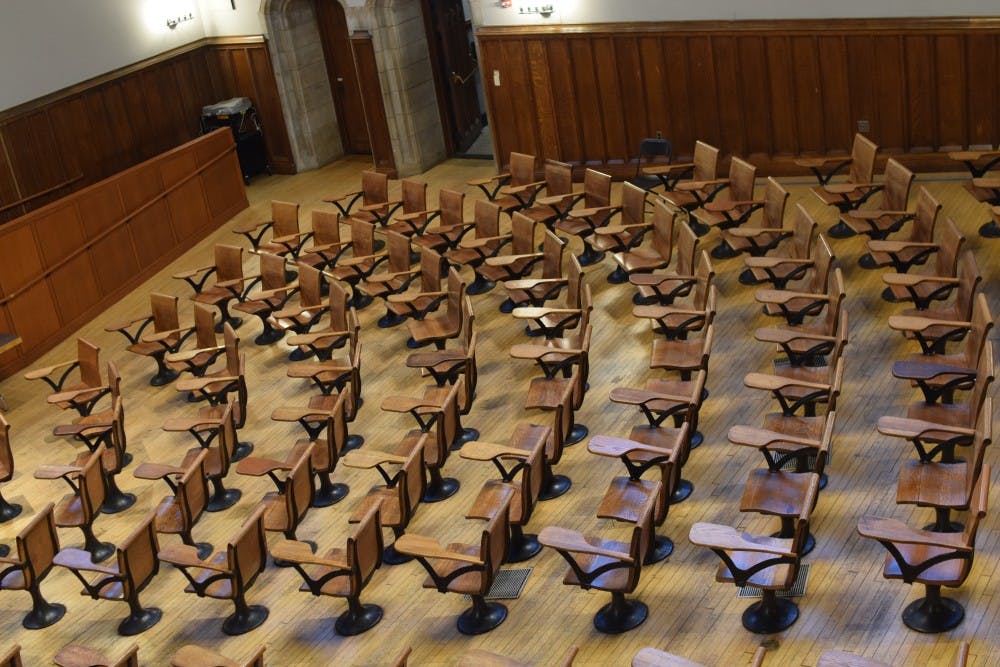Most people don’t like it when things are difficult, but many enjoy insisting that their situation is difficult regardless.
This culture of competing to show that one suffers the most is ingrained into our University community, in a phenomenon which we know as “misery Olympics,” to quote a TigerConfessions# post from September. Yet the glory of the Olympics should not be compared to the repulsive and unproductive competition that is embodied in this unhealthy contest present throughout our university. This is especially true for an online semester, in which our community should not have to face more fragmentation.
Unfortunately, I have recently found myself getting wound up by such toxic comments. I used to post about cooking and engaging in my hobbies on my social media, yet after being met with passive aggressive remarks about how I “am so lucky to have so much time” on my hands, I have stopped and instead begun to re-emphasize the difficulty of my work.
There are several potential reasons as to why we may feel the irrational need to have it most difficult. Rosamond van Wingerden ’20, in her column, talks about how “disordered eating, like sleep deprivation and alcohol abuse, is glamorized and encouraged on campus.” Perhaps in that same mentality, we romanticize the struggle of a difficult livelihood. Another explanation would be insecurities and an offshoot of impostor syndrome blowing up a desire to prove that we have worked hard to achieve what we have achieved, rather than having had it easy.
Reasons for this unhealthy competition aside, what makes matters worse is that such a competition further divides an already fragmented community. We are all physically separated from each other, and this is difficult in itself. While we should focus on helping each other succeed and on strengthening our community, toxic competition only further fractures the difficult situation we are already in.
This is especially true because we are no longer studying and working under the same conditions. Whereas we may have been able to physically attend classes and study under similar environments beforehand, this is no longer true for a fully online semester. Many of us come from different home situations, with different access to resources and comfort. Some of us may be living on our own for the first time in our lives, and many of us may have more responsibilities than if we were on campus.
Without understanding the true situation of others, it is not only toxic and unnecessary to compare difficulties, but nonsensical and invariably ignorant as well. Healthy academic competition can help us unite and motivate each other, but there is no clear merit to this kind of competition.
Being sensitive about one’s troubles and competing to prove how one’s difficulties outweigh another’s has fractured our society and distracted us from making meaningful societal change. Men are often defensive when it comes to acknowledging that other gender minorities face many difficult obstacles; bitter racial majorities have put forth unfounded claims of “minority privilege.” While our “misery Olympics” are not proportionally equivalent to these societal problems, we can learn that being sensitive about who has it the worst can divide societies and inhibit us from understanding and solving our actual problems.

The solution is simple but requires deep introspection: In order to prevent such divisions in our own community, we need empathy and understanding. We must simply be willing to acknowledge the problems that the other faces. Mutual recognition of one another’s difficulties will help advance understanding in a divided environment; it can help create a dialogue and a discussion, rather than a competition. If two individuals are facing difficult challenges, then the solution should be to solve those problems, not compete to see whose problems are more significant. A mutual understanding and recognition is the first step to actually solving our problems, which should be the main goal.
None of us have it easy as Princeton students in an online semester. Some have more difficult home situations than others, and some come from more difficult backgrounds, yet the academic rigor isn’t very different between each individual — with the exception of pre-med BSE student athletes taking six courses. But it is now time to have a conversation to help each other succeed rather than demean each other’s success or hard work. Perhaps then we will be able to foster a more supportive community even in such difficult circumstances, rather than the contest for misery that our community appears to strive for at this moment.
Won-Jae is a first-year student from New York, N.Y., and Seoul, South Korea. He can be reached at wonjaec@princeton.edu.









